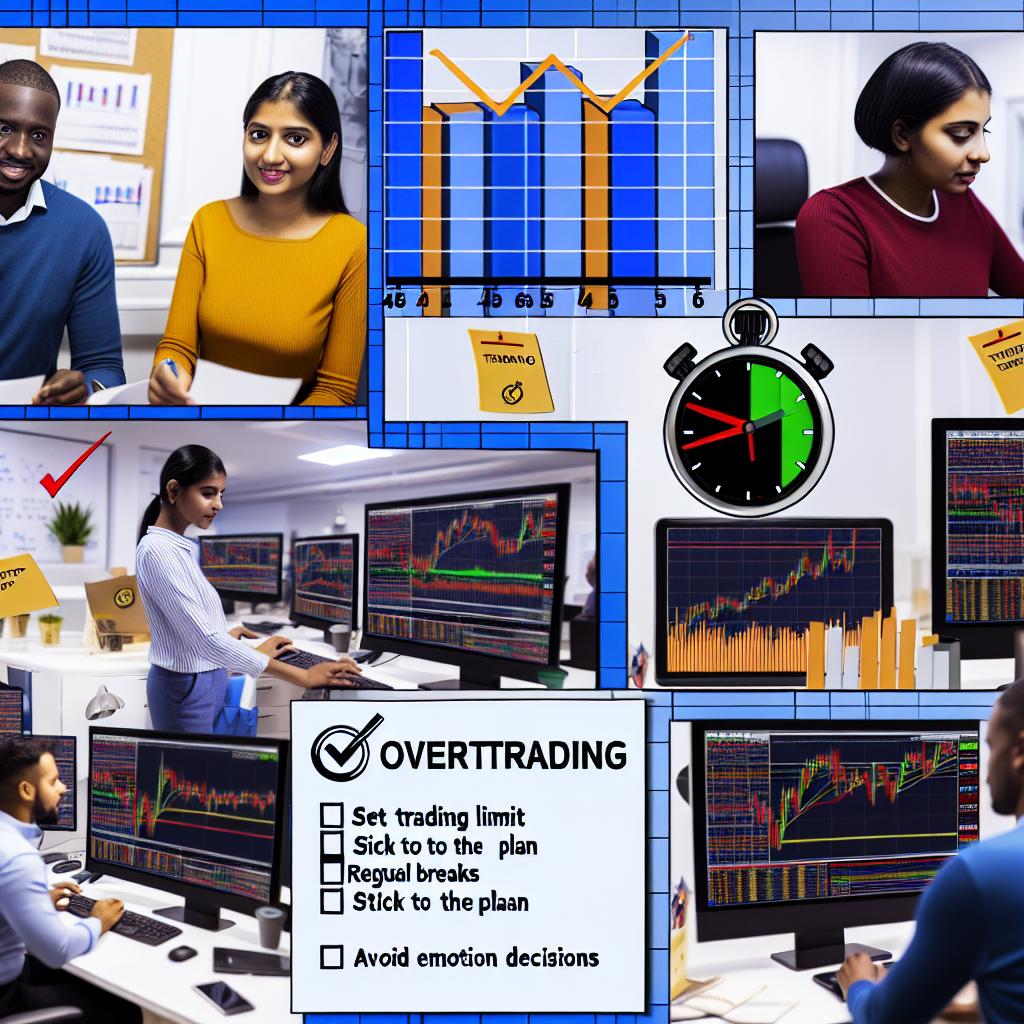Understanding Overtrading in Forex
Overtrading in Forex day trading is a prevalent issue that can lead to substantial financial losses. It typically involves excessive trading frequency or taking on larger positions than one’s risk management strategy permits. This behavior often arises due to emotional triggers such as excitement, anxiety, or the urge to quickly recover financial setbacks. Understanding overtrading is crucial for anyone engaged in Forex trading, as avoiding this pitfall can lead to more disciplined and successful trading experiences.
Recognizing the Signs of Overtrading
To effectively circumvent overtrading, traders need to recognize its early signs. One common indicator is an increased amount of time spent in front of trading screens, often accompanied by an incessant pursuit of trades without a coherent strategy. This behavior can lead traders to deviate from their established trading plans, as impulsive decisions overshadow calculated, strategic moves. Recognizing these signs is the first step toward mitigating the risks associated with overtrading.
Developing a Strategic Trading Plan
A well-defined trading plan is vital to prevent overtrading. Such a plan should encompass detailed entry and exit strategies, along with risk management rules, and position sizing guidelines. Traders must ensure that their strategies are grounded in thorough analysis and rely on proven methodologies rather than speculative or untested assumptions. By adhering to a disciplined trading plan, traders can maintain consistency and make informed decisions.
Implementing Risk Management
Effective risk management serves as a safeguard against the tendencies to overtrade. Establishing clear stop-loss levels and adhering to them diligently, even when emotions suggest otherwise, is essential. Additionally, setting predetermined limits on the maximum number of trades to execute within a given time frame, be it a day or a week, can effectively prevent impulsive decision-making. These measures foster a disciplined approach to trading and help avoid the potential pitfalls of overtrading.
Maintaining Discipline and Emotional Control
Discipline is a cornerstone in the fight against overtrading. Traders must adhere to their trading plans and resist the temptations of impulsive trades. Practicing emotional control, while challenging, is crucial for maintaining focus and rationality during decision-making processes. Techniques such as mindfulness and journaling are highly effective in aiding traders to manage their emotions actively. By maintaining an even temperament, traders are better positioned to stick to their strategies.
Utilizing Technology and Tools
Modern trading platforms provide an array of tools designed to help traders remain disciplined. Features such as trade alerts, automated orders, and performance analytics can aid in maintaining a structured trading routine. These tools are instrumental in assuring compliance with one’s trading strategy and in limiting the influence of emotional factors. By leveraging these technological advancements, traders can enhance their decision-making processes and achieve greater consistency.
Seeking Continuous Education and Improvement
Education is a powerful ally in averting the dangers of overtrading. Engaging in continuous learning and improvement can significantly enhance trading skills and reinforce disciplined trading habits. Online courses, webinars, and reputable financial websites provide valuable insights into effective trading strategies and risk management techniques. By prioritizing education, traders can develop a deeper understanding of the market and refine their approach over time.
Building a Support System
Establishing a robust support system can be highly beneficial for traders. Working alongside experienced traders or engaging with trading communities provides additional layers of support. By sharing experiences and insights, traders can gain a reality check on their practices and receive valuable feedback. This collaborative approach fosters a supportive environment, allowing traders to learn from one another and enhance their trading methodologies.
In conclusion, by understanding the causes and signs of overtrading, traders can implement strategies to significantly reduce the risks associated with this common pitfall. Fostering discipline, adhering to strategic plans, and continually seeking education are pivotal in achieving long-term success in Forex day trading. As traders become more adept at managing their emotions and employing sound risk management practices, they position themselves to navigate the market with increased confidence and resilience. Through diligence and understanding, traders can transform their trading experiences and achieve sustained profitability.
This article was last updated on: June 19, 2025
